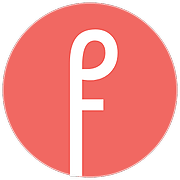Funnels
How does the funnel checkout page work?
Learn how the checkout page works and what important settings you need to pay attention to.
Updated 2 days ago
How checkout pages work.
In this video, you'll learn how the checkout page works and what important settings you need to pay attention to.
(Loom cut out of me and therefore there are two videos you'll need to watch below)
Step-by-Step Guide to Set Up Your Checkout Page
This guide will walk you through setting up the basic structure of your checkout page using a page builder.
Step 1: Access Your Checkout Page Template
Go to your page builder and locate the "Sales and Checkout Page" template.
Click on the template to open it for editing.
Step 2: Choose Your Checkout Style (Optional)
On the left-hand side of the page builder, you will see pre-made checkout page options. These may include "One Step Order" or "Two-Step Order Form."
By default, "One Step Order" is usually selected.
To use a two-step checkout: Click the "+" icon and scroll down to select "Two-Step Order Form."
Step 3: Focus on the One-Step Checkout for Now
Setting Up a Two-Step Checkout Page
This guide will walk you through setting up a two-step checkout page on your sales page builder.
Step 1: Accessing the Two-Step Order Form
Locate the "Sales and Checkout Page" template in your page builder and open it for editing.
On the left-hand side of the page builder, you will see pre-made checkout page options. Click the "+" icon and scroll down to select "Two-Step Order Form."
Step 2: Understanding Two-Step Checkouts
A two-step checkout page collects customer information in two stages:
Step 1: Billing/Shipping Information
Step 2: Payment Information
This method allows you to capture leads (emails) in step 1 even if they abandon the purchase in step 2. This is useful for sending abandoned cart emails later.
Step 3: Editing Step One
Most of the editing for the two-step checkout will be done under the "Advanced" section.
Step one typically focuses on collecting billing information. You can edit the fields displayed here.
Common edits include:
Hiding unnecessary fields like "Company Name" or "Phone Number"
Changing the title from "Shipping" to "Billing Info"
Step 4: Editing Step Two
Similar to step one, editing for step two is done under "Advanced" for step two.
Step two typically focuses on collecting payment information.
Step 5: Customizing Checkout Options
You can enable or disable features like:
Cart Mode: Disable this if you only have one product.
Coupon Codes: Enable this if you offer coupons.
Sticky Contact: Pre-populates information for returning customers.
Order Bumps: Allows customers to add another item before checkout (covered in a separate video).
Step 6: Thank You Page
Define where customers go after completing checkout. This is usually a thank you page.
Ensure the thank you page aligns with the specific product purchased (e.g., don't send someone who bought the basic product to a VIP thank you page).
Step 7: Design Limitations (Current)
You cannot currently edit the design of the checkout area without using CSS code.
This functionality is expected to be added in the future.
Step 8: Dynamic Item
The "$99.00 Dynamic Item" you see in the editor is a placeholder.
This will be replaced with the actual product information once you add products to your checkout page.

